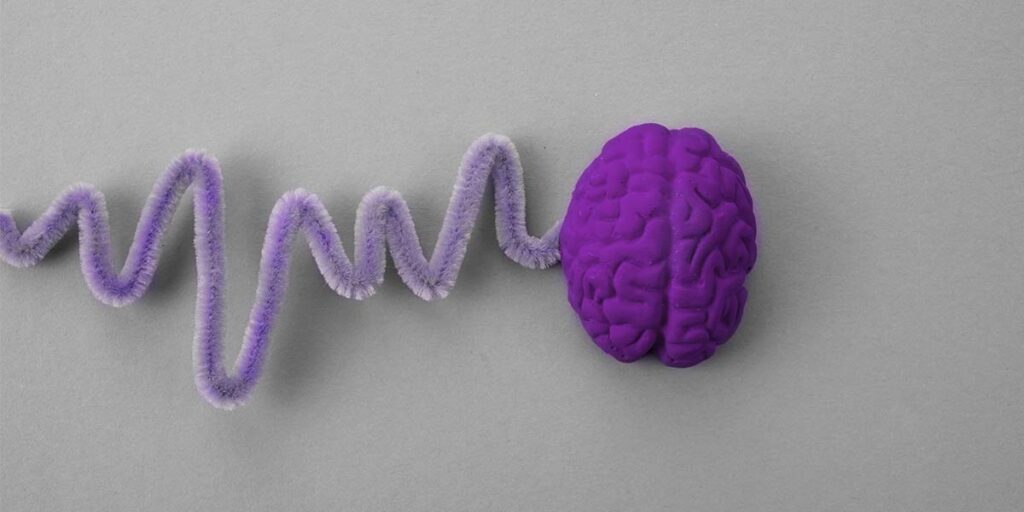Recognizing November as Epilepsy Awareness Month
Almost 3.5 million people in the United States have epilepsy, yet many people do not know much about the condition. That’s why the Epilepsy Foundation of America designates every November as National Epilepsy Awareness Month to raise awareness about the disorder. One in 3 people with epilepsy experience uncontrolled seizures, and it’s important to learn first aid to help them. You also could have someone in your life with undiagnosed epilepsy. Learning to recognize the signs of a seizure can lead people to get diagnosis and treatment, which often starts with a brain MRI at American Health Imaging.
What is epilepsy?
Epilepsy is a chronic neurological disorder highlighted by recurrent, unprovoked seizures. These seizures are not the same as those caused by a reversible medical condition, like low blood sugar.
Some people are born with epilepsy and live with it all their lives. Others may develop epilepsy after a traumatic brain injury, or TBI. In some patients, epilepsy may be one of multiple neurological disorders that are present. While epilepsy seems to have a genetic component for some patients, many people affected by epilepsy do not know the cause of their disorder.
Most people living with epilepsy live normal lives. However, some people with uncontrolled seizures may not be able to work, or to work full-time. But even if your severe epilepsy qualifies as a disability, it is still possible to enjoy a good quality of life, thanks to modern advances in treatment. While epilepsy cannot be cured, medication, surgery and other treatments can minimize seizures for many people.
Learn the signs of seizures during Epilepsy Awareness Month
Most epileptic seizures don’t look the way they are portrayed in the movies. While some people do experience seizures where they collapse, seem to lose consciousness and have full body spasms, other people may have seizures that appear as if they are staring out into space. Most people with epilepsy experience different types of seizures. Other symptoms can include:
- Dizziness
- Feeling out of your body
- Mild muscle spasms in your arms or legs
- Tingling or numbness
- Uncontrolled bowel movements
- Unexplained weakness or confusion
- Unusual smells or tastes
One in 10 people will experience a seizure in their lifetime. Learning the basics of seizure first aid is important for everyone. Try to remember the three S’s: Stay, Safe, Side.
- Stay with the person having a seizure until they are awake. Start timing the seizure event and check for a medical ID bracelet.
- Make sure the person is safe and not in danger from cars or harmful objects.
- If the person seems unconscious, turn them onto their side.
You should not restrain a person having a seizure or put anything into their mouth, including water. Most seizures last only a few minutes but call 911 if it lasts over five minutes. You should also call 911 if the person seizing is injured or pregnant, has multiple seizures, does not seem normal after the seizure or is having one for the first time.
The Epilepsy Foundation of America offers free online training to recognize the signs of a seizure and how to best provide first aid.
How can an MRI scan at American Health Imaging help with epilepsy?
Diagnosing epilepsy can be challenging, since seizures can be caused by other things, like sleep deprivation or alcohol withdrawal. That’s why MRI imaging is used to diagnose epilepsy, in addition to a physical exam, bloodwork and other tests like electroencephalography, or EEG.
A brain MRI at AHI can help your treatment for epilepsy by:
- Seeing if a tumor or blood vessel abnormality caused your seizure.
- Determining what kind of seizures you are having, which is important for getting the best treatment.
- Evaluating if surgery would be effective in controlling your seizures.
If you need surgery, an MRI can help your surgeon identify the best surgical approach to your brain.
Choose answers, schedule your MRI
AHI makes it easy to get an MRI, with affordable rates and convenient locations across the Southeast. We also offer weekend and evening hours at many locations.
If you or a loved one may be experiencing signs of epilepsy, contact your primary care provider. If your doctor orders an MRI, request an appointment at AHI.
